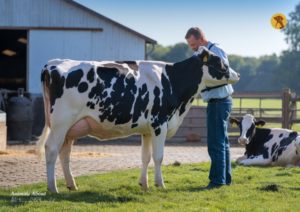If you’re an animal lover like me, you’ve probably noticed how unique every dog breed is not just in looks or personality, but in how they feel day to day. Some breeds bounce around like they’re invincible, while others seem to visit the vet more often than we’d like. It’s heartbreaking to see our furry friends struggle, but understanding dog breeds health issues can make a huge difference in keeping them happy and healthy. So, let’s dig into why some breeds face more challenges and how we can care for them the right way.
Why Do Some Dog Breeds Have More Health Problems?
Have you ever wondered why your neighbor’s Bulldog snores like a freight train or why your friend’s German Shepherd limps after a long walk?
It often comes down to canine breed genetics. Purebred dogs, while beautiful and distinct, are sometimes prone to genetic disorders in dogs because of selective breeding.
Over generations, breeders focused on traits like size, coat, or that adorable squished face sometimes at the expense of health.
Take flat-faced breeds like Pugs or French Bulldogs, for example. Those cute little snouts can lead to breathing issues in flat-faced dogs, a condition called brachycephalic syndrome. Or consider large breeds like Great Danes, prone to joint problems in large dog breeds like hip dysplasia.
These breed-specific health problems aren’t random; they’re tied to their DNA, passed down through hereditary dog conditions.
Common Health Issues to Watch For
Not every dog will face these challenges, but knowing the common illnesses in dog breeds can help you spot trouble early. Here are a few examples:
- Short Lifespan Dog Breeds: Breeds like the Bernese Mountain Dog or Irish Wolfhound often have shorter lives due to inherited dog diseases like cancer or heart issues.
- Purebred Dog Issues: Dachshunds, with their long backs, are at risk for spinal problems, while Boxers might face heart conditions like cardiomyopathy.
- Dog Breed Medical Conditions: Golden Retrievers, as lovable as they are, have higher rates of cancer, a tough reality for many owners.
It’s not all doom and gloom, though! Understanding these canine health risks means we can take action to help our pups thrive.
How to Care for Breeds with Health Concerns
So, what can we do about these dog health concerns? First, knowledge is power. If you’re bringing home a purebred, research its breed-specific health problems.
Ask your breeder about health screening for dog breeds. Reputable ones will test for things like hip dysplasia or eye conditions.
Next, tailor their care. For instance:
- Breathing Issues: Keep flat-faced dogs cool and avoid overexertion. Those short noses struggle in heat.
- Joint Problems: For big breeds, a diet that supports bone health and moderate exercise can ease strain on hips and knees.
- Chronic Conditions: If your pup has a condition like epilepsy (common in Beagles), work with your vet on managing chronic conditions in dogs.
And don’t skip those vet visits! Vet advice for dog owners is gold: regular checkups can catch problems early, especially for breeds with hereditary dog conditions.
Are There Healthier Dog Breeds?
If you’re wondering, “Why do some dogs get sick often?” while others seem to dodge the bullet, you’re not alone. Mixed breeds often have fewer purebred dog issues thanks to a wider gene pool.
But even among purebreds, some stand out as the healthiest dog breeds. Australian Cattle Dogs and Border Collies, for example, tend to have fewer dog breeds with few health problems, living long, active lives.
Your Role as a Dog Parent
Being a dog owner is a big responsibility, especially when it comes to best care tips for purebred dogs. It’s about more than just love (though that’s a huge part!).
It’s watching for signs of trouble, feeding them right, and giving them the exercise they need without pushing too hard. For me, seeing my dog wag his tail after a good day makes every effort worth it and I bet you feel the same.
So, next time you’re cuddling your pup, think about their breed’s unique needs. Whether they’re a tiny Chihuahua with a big personality or a massive Mastiff with a gentle heart, understanding dog breeds health issues helps us give them the longest, happiest life possible.
What’s your dog’s breed, and how do you keep them thriving? I’d love to hear your stories!
Disclaimer: The information provided on animlasabout.org is for educational purposes only and is not a substitute for professional veterinary advice. Always consult a qualified veterinarian for your pet’s health concerns.







